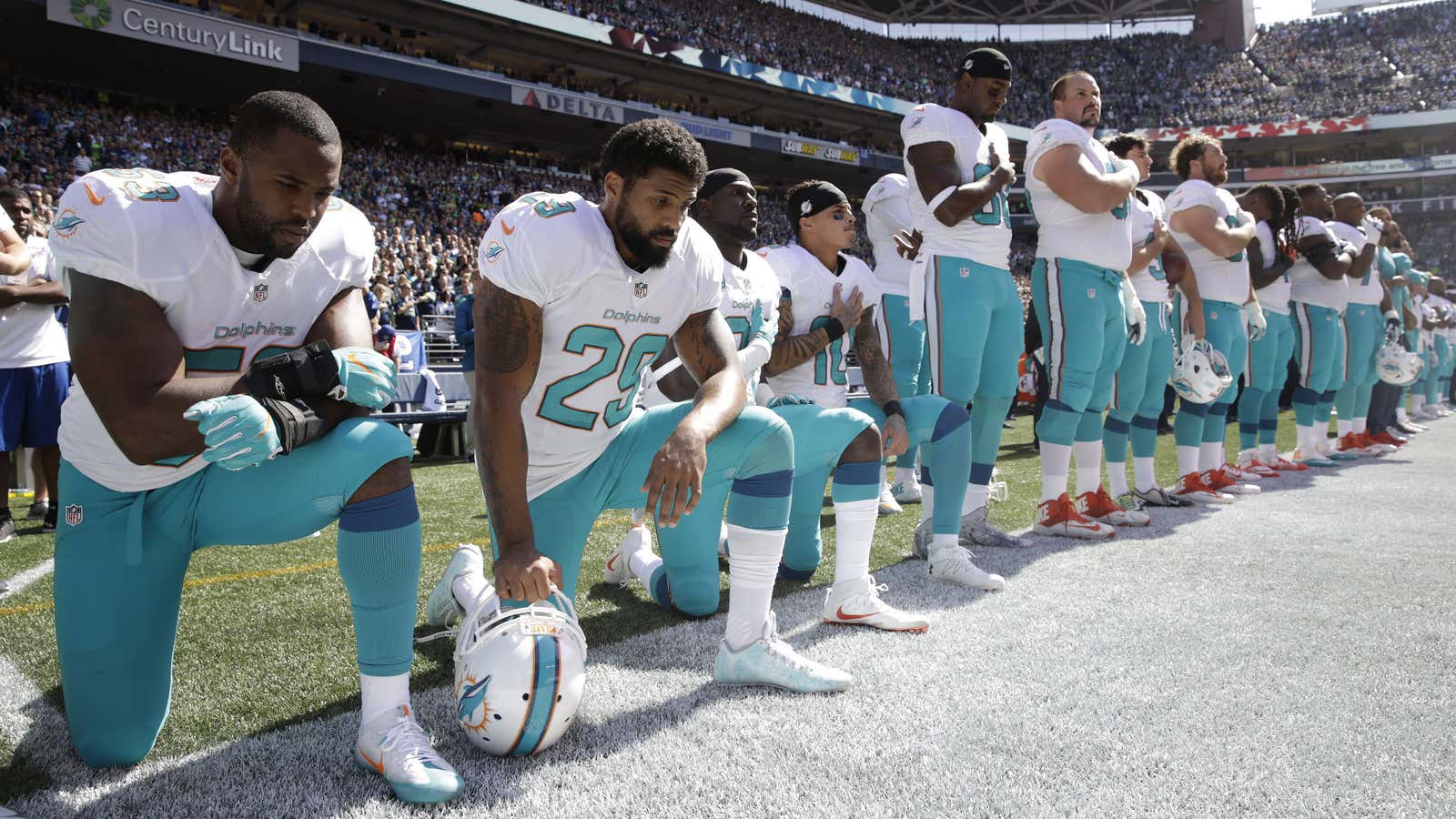US president Donald Trump wants the National Football League (NFL) teams to fire players who refuse to stand during the playing of the national anthem at the beginning of games. During a political rally in Alabama on Sept. 22, and again today on Twitter, Trump called the kneeling protest disrespectful.
“The president is saying if they want to get rid of the players, they should,” White House legislative affairs Marc Short told NBC’s Chuck Todd on Meet the Press Sunday. The practice of kneeling during the playing of the Star-Spangled Banner was kicked off last year by former San Francisco 49ers quarterback Colin Kaepernick to bring attention to police violence against African Americans. A poll in September 2016 by Reuters said 72% of Americans found Kaepernick’s behavior unpatriotic.
Trump can’t do anything himself about kneeling players. But he is correct in pointing out that team owners could. While the First Amendment protects individual rights to freedom of speech, it doesn’t shield employees from sanctions from their employers. That’s the same legal argument that Google used in August to fire James Damore, the engineer who wrote an anti-diversity manifesto arguing that women are not as adept at technology as men.
At the time, Google CEO Sundar Pichai told employees that “to suggest a group of our colleagues have traits that make them less biologically suited to that work is offensive and not OK.” In other words, it’s disrespectful.
Like Google, NFL team owners have the same dismissal rights. The NFL standard contract signed by every player gives them plenty of leeway, as Sports Illustrated’s legal analyst points out. A player who doesn’t “conduct himself on and off the field with appropriate recognition of the fact that the success of professional football depends largely on public respect for and approval of those associated with the game,” or who “has engaged in personal conduct reasonably judged by Club to adversely affect or reflect on Club,” is subject to being fired.
It wouldn’t be hard for owners to argue that defying honoring the flag reflects poorly on their teams, or that it negatively affects their image. Plenty of people booed at the Alabama rally when Trump mentioned players taking the knee and cheered when he called for them to be fired.
For now, both the league and individual owners have shown little interest in letting anyone go. In an extraordinary public statement, even New England Patriots’ owner Robert Kraft, a major Trump supporter, chided the president.
Indeed, firing players for protesting could generate a bigger public backlash than failing to condemn them for kneeling. Players at Sunday’s NFL game in London kneeled in response to Trump’s comments and got substantial support from fans tweeting under the hashtag #TakeTheKnee.
After players locked arms and kneeled prior Sunday’s games in protest of Trump’s earlier tweets, the president appeared to back off:
